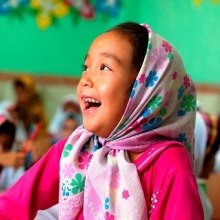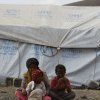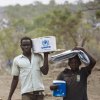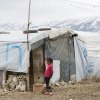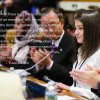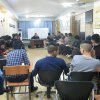
$1.8 million European Union Donation to UNHCR greatly enhances essential services and...
$1.8 million European Union Donation to UNHCR...
The donation made in line with the Solutions Strategy for Afghan Refugees (SSAR); a regional, multi-year strategy for voluntary repatriation, sustainable reintegration and assistance to host countries, aims to enhance essential services and durable solutions for Afghan refugees in Iran.
UNHCR Representative in Iran, Sivanka Dhanapala said, “UNHCR is grateful to the humanitarian efforts of the European Union and for this generous donation which will go a long way towards providing better support & protection for refugees whilst in Iran and upon voluntary repatriation.”
Interventions in the fields of health, education, livelihoods, legal assistance and voluntary repatriation provide support to refugees, aimed at strengthening school attendance, literacy, self-reliance and health services in addition to ensuring access to legal assistance and sustainable voluntary repatriation for those opting to return.
This donation will further enable UNHCR, together with its government counterparts, BAFIA and the Ministry of Education to ensure continued access to education for refugees, enabling them to benefit from Iran’s quality educational system with certification and recognition. The funds will contribute to the construction and rehabilitation of schools and the provision of literacy courses for over-aged refugees and out-of-school children.
The contribution also complements the Ministry of Health’s primary health care services rendered to refugees through health centers, including the provision of vaccinations, antenatal care, maternal and child health and family planning. In addition, the Universal Public Health Insurance, a recent initiative by the Government of the Islamic Republic of Iran will ensure access to secondary and tertiary medical services for all registered refugees residing in Iran. Access to this Insurance, known as Salamat health Insurance, addresses the issue of refugee health security as well as the financial challenges with regard to the costs of health care services.
In the area of livelihoods, the provision of skills training courses, offered by the Technical and Vocational Training Organization and UNHCR, contributes towards enhanced self-reliance for refugees. Increasing the economic capacity of refugee households can promote durable solutions and facilitate the sustainability of voluntary repatriation.
Furthermore, this contribution will enable UNHCR to provide legal assistance to Afghan refugees in Iran through Dispute Settlement Committees (DSCs) and UNHCR Hired Lawyers (UHLs). The DSCs will provide Afghan refugees with a forum for the easily accessible and expeditious resolution of civil claims through mediation and arbitration. UHLs will provide free legal advice and assistance to Afghan refugees, represent UNHCR at DSC sessions and actively participate in DSC deliberations.
With this contribution, UNHCR will also be able to improve its capacity to facilitate the voluntary repatriation of Afghan refugees. Information relevant to facilities in Afghanistan as well as voluntary repatriation procedures will be made publicly available to ensure that refugees make informed decisions. Refugees will also receive transportation and luggage allowances for voluntary repatriation as well as non-food items to cover immediate basic needs during the very first days upon their return.
source: NUHCR. Iran
 Reload
Reload